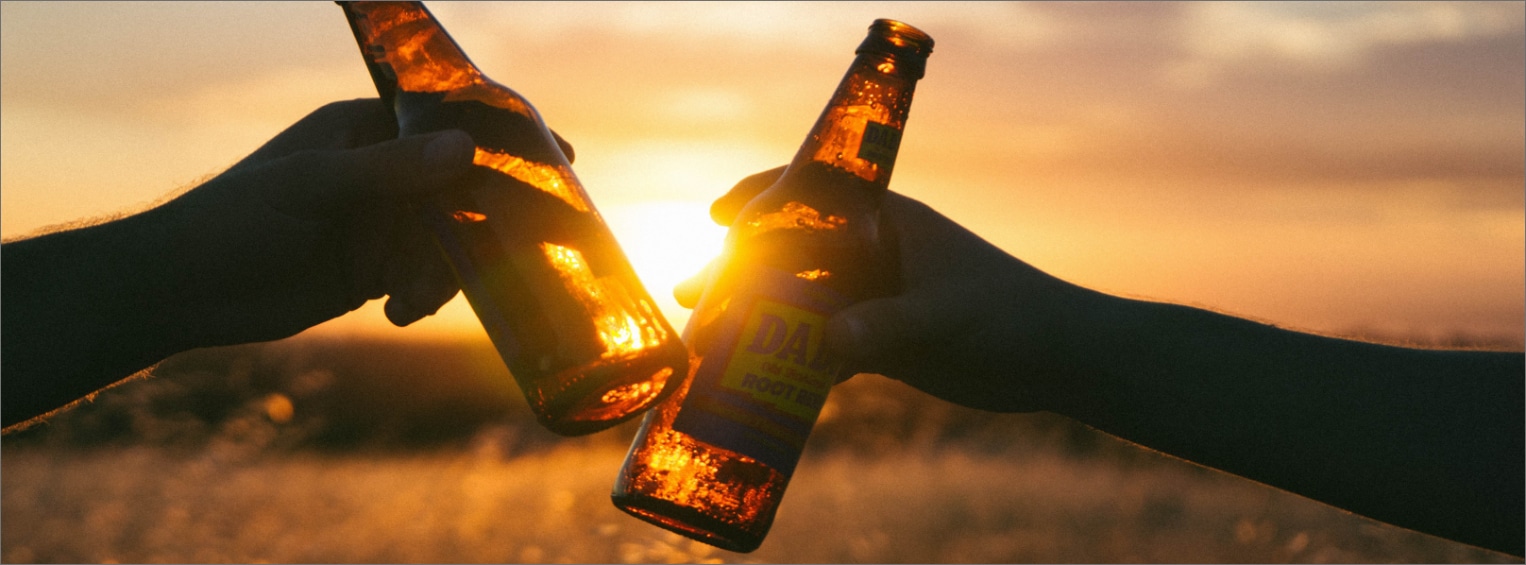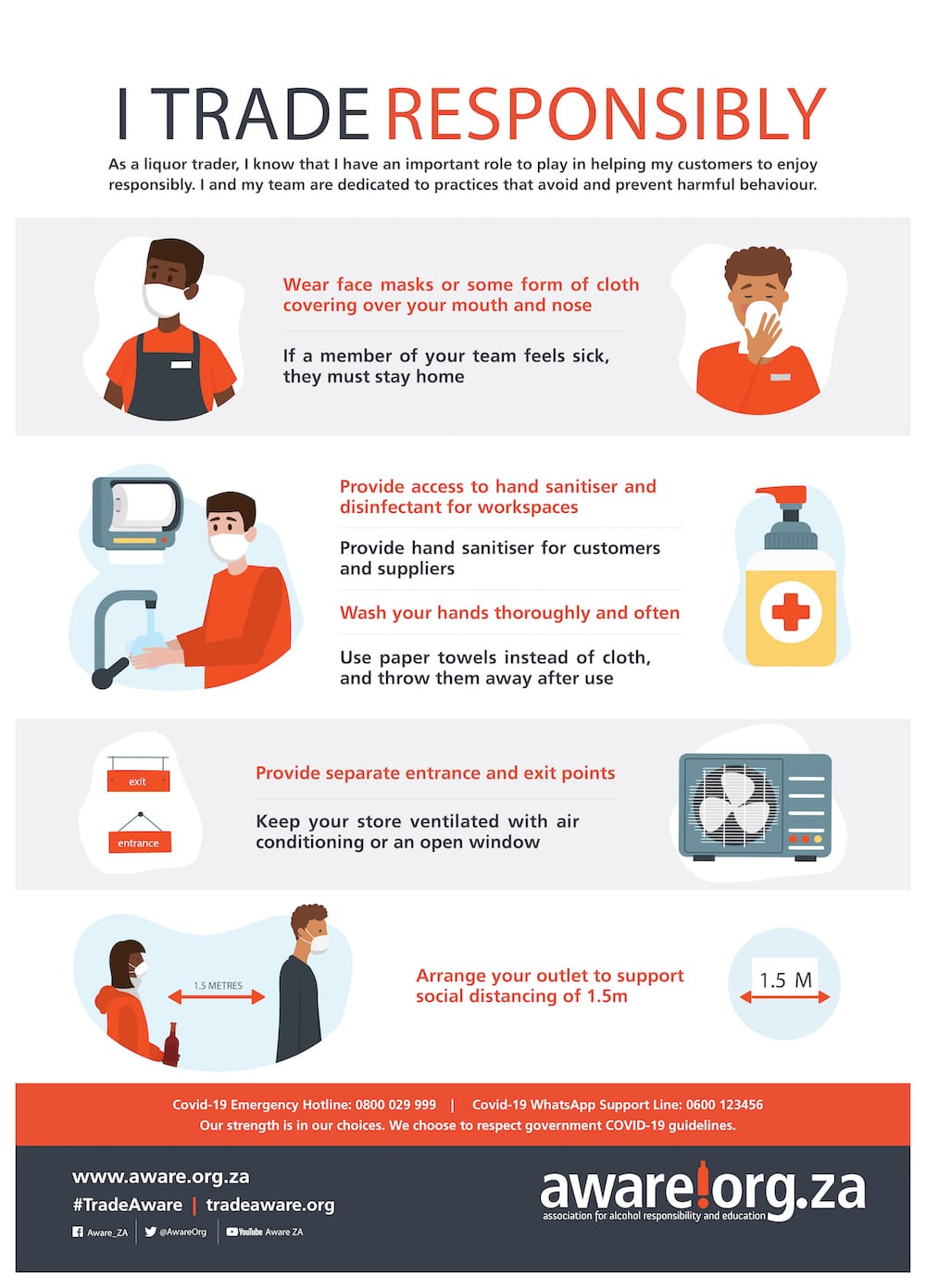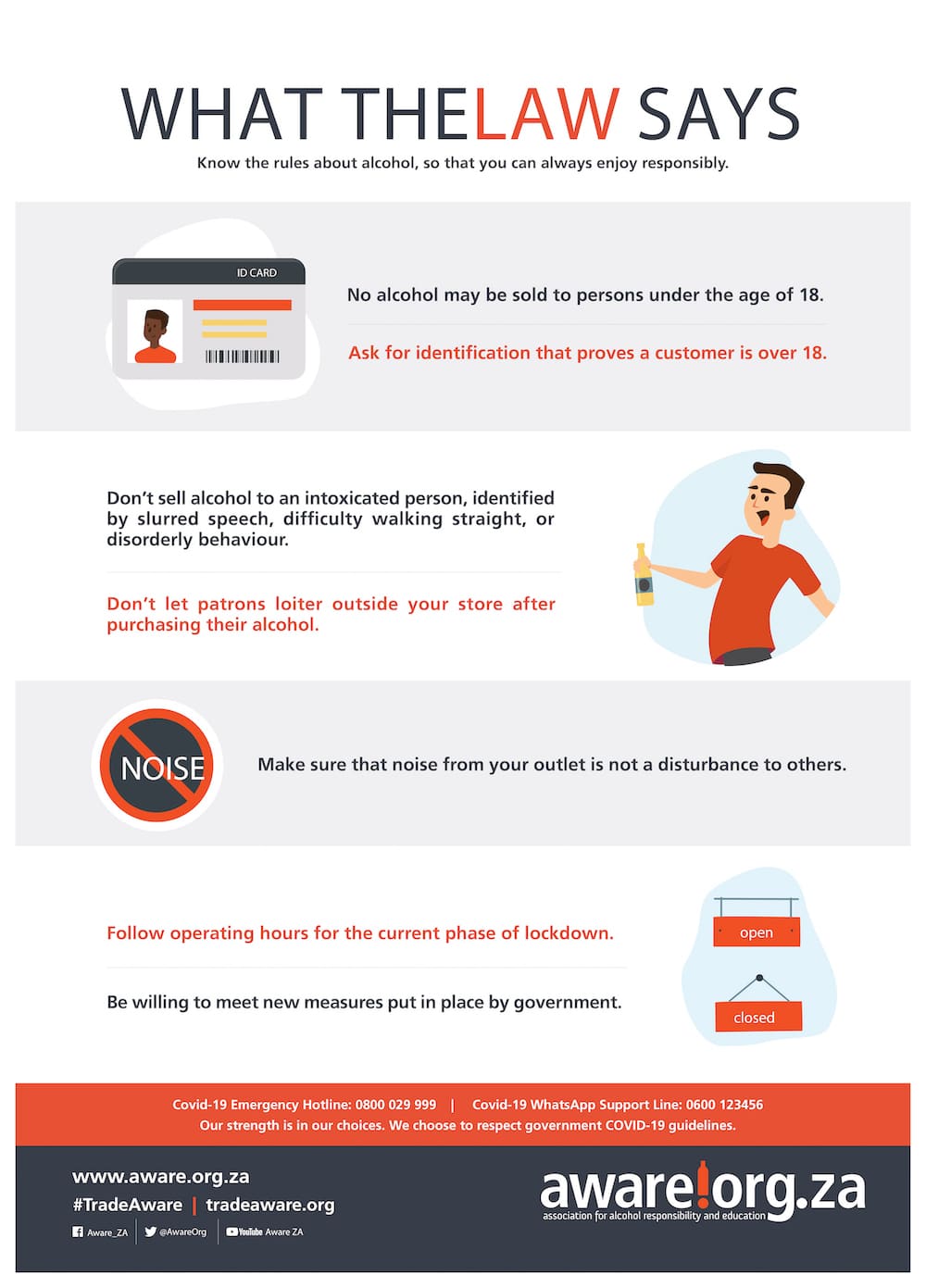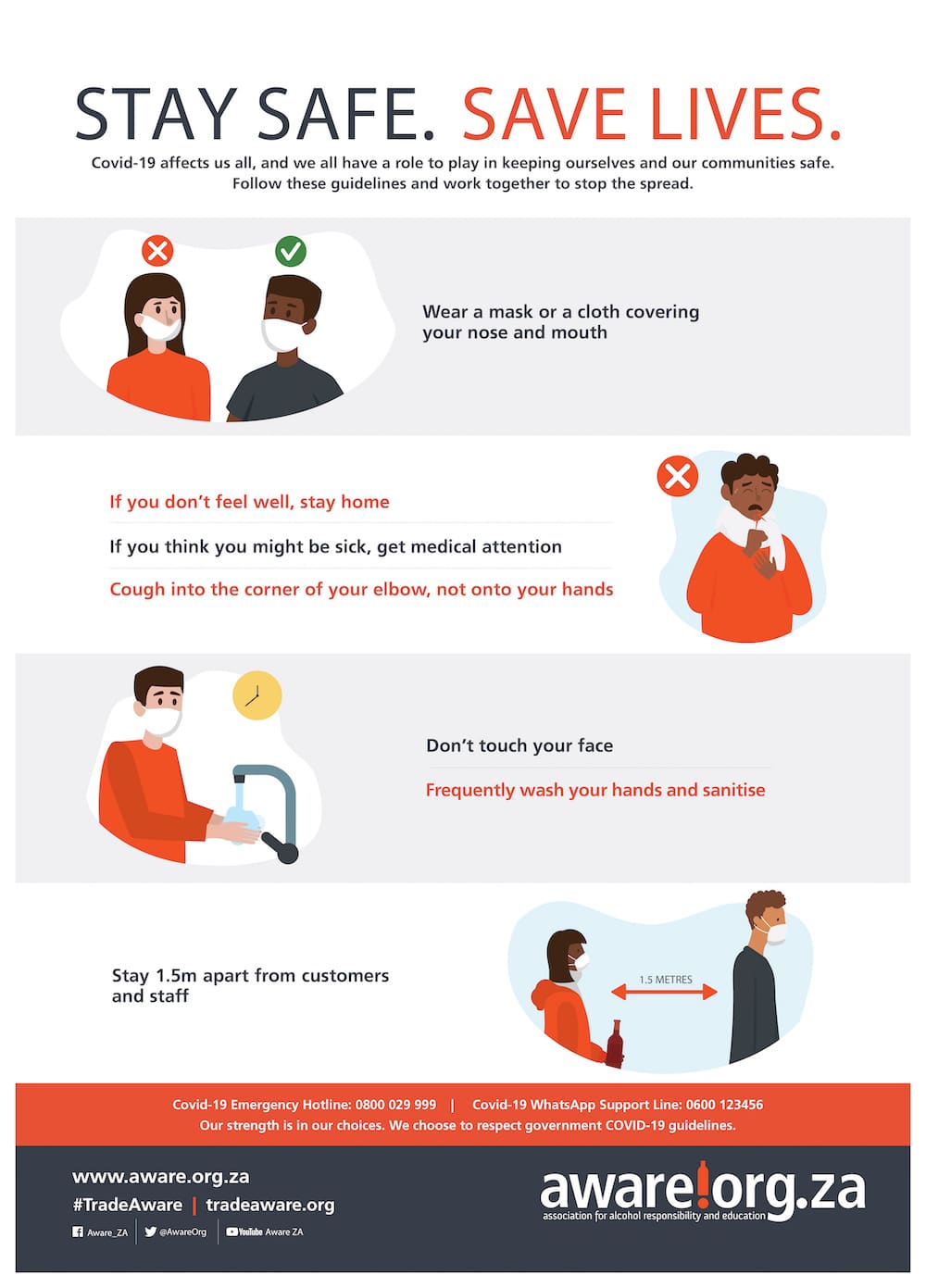One for the road: Significant business implications lie ahead for the alcohol industry and its marketing ecosystem

The advertising and marketing of alcohol is not currently subject to legislation. But the National Liquor Amendment Bill is with the dtic minister, and if it passes, could have a profound impact on the way in which the alcohol industry markets its wares, writes INGRID LOUW.
That South Africa is a nation of heavy drinkers is not disputed. The country is ranked as the sixth biggest drinking nation in the world by the World Health Organisation in terms of average alcohol consumption.
Excessive drinking poses a significant health and lifestyle risk for many, and has a concomitant negative impact on our fiscus. It also puts massive pressure on the (public and private) healthcare system. We are burdoned with high rates of irresponsible alcohol consumption behaviours and patterns, and these contribute to alcohol-related harm including FASD, binge drinking, underage drinking, drink driving and walking, and related social crimes.
This was highlighted by the fact we entered 2021 with another alcohol ban in place as we battle the second surge of Covid-19 infections. It was the third since Covid-19 landed on our shores back in March 2020.
Nevertheless, the alcohol industry does play a positive role in ensuring livelihoods, however, by contributing over R173 billion to the GDP and R72 billion in tax and excise duty and supporting approximately one million livelihoods across the alcohol value chain – from agriculture to glass manufacturing, advertising, retail and hospitality.
But there is a growing view within government that the alcohol industry is not doing enough to reduce alcohol-related harm and that self-regulation is not the most effective strategy for addressing concerns with regard to South Africa’s drinking problem.
Self-regulation rules
Currently, the advertising and marketing of alcohol is not subject to legislation regarding the manner in which it markets and advertises its brands. Instead, it is committed to self-regulation as the most effective strategy to achieve responsible consumption by people who choose to enjoy alcohol in moderation.
The Association for Alcohol Responsibility and Education (Aware.org) is the organisation that represents the alcohol manufacturers, distributors, liquor traders and retailers – including Distell, Pernod Ricard, Diageo, SAB (AB InBev), Heineken, VinPro and SALBA. A key mandate is to work together with government and civil society stakeholders to empower responsible consumption and to contribute towards reducing alcohol-related harm.
Until the rules change
The current National Liquor Amendment Bill is with the Minister of Trade, Industry and Competition, Minister Ebrahim Patel. It is expected that the Minister will deliberate on the Amendment Bill with Cabinet prior to it going through a public process in Parliament. Significant restrictions and, according to some insiders, a potential total ban on alcohol advertising is one of the expected outcomes of the Bill.
Either way, this is expected to have significant business and economic implications for the alcohol industry and its marketing, advertising and media ecosystem – in terms of jobs lost, revenue forfeited, contracts cancelled and reductions in brand equity.
In January 2020, to demonstrate its commitment to responsible marketing and reducing alcohol harm, Aware.org, together with its industry members, revised and relaunched the Code of Commercial Communications (the Code) that governs alcohol marketing and advertising. The Code was mostly well-received by government stakeholders. There were some naysayers – a few academics, civil society organisations and representatives from the fourth estate.
And then Covid-19 happened
Most people misunderstand what happens during a crisis. The common view is that in a moment of turmoil, people’s thoughts and opinions are suddenly and drastically changed. However, this is a misconception, because a crisis doesn’t change how we feel. It just intensifies what we were already feeling. As Professor Scott Galloway puts it: “Covid-19 is an accelerant… not a change agent.”
“The sale, dispensing and distribution of alcohol will be suspended with immediate effect. There is now clear evidence that the resumption of alcohol sales has resulted in substantial pressure being put on hospitals, including trauma and ICU units, due to motor vehicle accidents, violence as well as trauma that is alcohol-induced.” ~ Cyril Ramaphosa, July 2020 #FamilyMeeting.
The State of Disaster alcohol sales bans put a spotlight on South Africa’s ‘drinking problem’ and the associated financial, social, human and opportunity cost of alcohol abuse and harm. While some are quick to label alcohol brands as being more focused on selling their products than actively working to address alcohol harm, this is not an accurate assessment.
Standing together to support the nation
The alcohol industry, as a collective, stepped up to support the Government and the nation in the battle to halt the spread of the Coronavirus. Following the 25 March 2020 announcement of the alcohol sales ban by the President, alcohol brands, collectively represented by Aware.org, worked together and with government to help to protect the nation from the scourge of the pandemic.
The alcohol industry, as part of a multi-stakeholder initiative, collaborated with public sector and civil society partners to develop a comprehensive social compact to address alcohol-related harm in South Africa head-on. Key focus pillars of the social compact include drinking and driving/walking, binge drinking, underage drinking, responsible trading and marketing and the strengthening of the industry’s Commercial Code of Practice.
As part of the social compact, the alcohol industry agreed to provide resources (funds, people and time) to assist government in dealing with the burden on the public healthcare system and to assist with the distribution of personal protective equipment (PPE), leveraging its extensive distribution and retail networks nationwide in support of efforts to combat the spread of Covid-19.
Sanitisers, safety and community support
Alcohol manufacturers, unable to produce, distribute or sell their products, converted their plants and factories to the production of hand sanitiser.
Industry members and the provincial Liquor Boards embarked on an extensive national, on-the-ground Covid-19 trade community initiative to empower and support just on 35 000 licensed traders with essential Covid-19 compliance elements (PPE, sanitisers, signage etc). and public and employee Covid-19 educational material to ensure government guidelines could be respected and were visible in retail and hospitality trade outlets.
To further ensure compliance and safety, traders were invited to access essential Covid-19 information and updates and real-time notifications via a user-friendly mobi-site, tradeaware.org.

More than ever your choices matter
Building on a previous responsible drinking campaign message, aware.org and its members launched a media campaign aimed at educating drinkers about the importance of their choices and the need for moderation to help flatten the curve and to free up medical resources and personnel in healthcare facilities.
As an added commitment to reducing alcohol harm with the alcohol trading ban lifted in level three (2020), alcohol brand owners agreed to pull all brand and product advertising from television, radio and other media to further support the government’s alcohol sales ban.
From September onwards, the industry demonstrated its commitment to reducing alcohol harm ensuring that all advertising adhered strictly to provisions of the Code to advertise on television and radio after 19h00, and to programmes where the audience is 70% over the age of 18 (the legal drinking age), to minimise the risk of exposing young people to alcohol messaging.
Brand owners used their own marketing platforms to drive responsible drinking and relevant Covid-19 messaging. During December 2020, aware.org members further demonstrated their commitment to supporting the nation during the pandemic by cancelling advertising campaigns and upweighting responsible consumption messaging.
Underage drinking in the spotlight
In November 2020, the first phase of a new responsible age verification trading programme was rolled out to industry members and retailers.

Festive season
A national festive campaign in partnership with the Road Traffic Management Corporation (RTMC) and the Department of Transport promoted a national road safety message.
The bold and emotive campaign, ‘It’s not just about you’, appealed to South Africans to consider the impact of their choice to drink and drive or drink and walk on others, including healthcare workers and first responders, family members, employees and employers, and other South Africans whose lives are compromised due to an individual’s irresponsible behaviour.

Looking ahead
The alcohol industry must continue to work with government and other stakeholders to craft sustainable solutions and policies that promote growth and reduce social ills. The industry should use its substantial strategic and creative talent to develop solutions that change behaviour to reduce alcohol-related harm.
Finally, it should explore and apply bold, disruptive and effective approaches to revising the Code, including but not limited to: age-gating and regulating online sales, especially under-age access, and ensuring that influencers work for good and not to promote irresponsible consumption.
BIO
Ingrid Louw is CEO for the Association of Alcohol Responsibility and Education (aware.org). For nine years prior, she fulfilled the position of CEO at Print & Digital Media South Africa. Before joining PDMSA, she worked as CFO for the National Electronic Media Institute of South Africa – a training institution established by the Department Of Communications which formed part of a government initiative in 1998. She has a Master of Business Administration (MBA) through Henley Business School.
Subscribe to stay informed whenever a new issue is published
